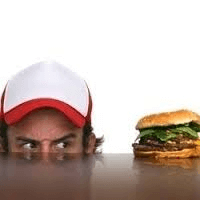To Eat or Not To Eat
 Food is one of my favorite subjects. I love to eat it, smell it, think about it, and talk about it. I’ve noticed that much of the conversation around food revolves around what one should or should not eat to be healthy. Often, I think information about the whys of good eating is far more important than the what.
Food is one of my favorite subjects. I love to eat it, smell it, think about it, and talk about it. I’ve noticed that much of the conversation around food revolves around what one should or should not eat to be healthy. Often, I think information about the whys of good eating is far more important than the what.
First let me say that the word diet has become a negative word in our lexicon. We use the big-D diet to inform how we restrict our intake, e.g., Atkins, South Beach, Paleo. The little-d diet is a derivation of the Greek word meaning “manner of living”. So, when I talk about diet (notice the little d), I mean manner of living. Here is a rule of thumb that I’ve learned from reading LOTS of scientific materials: if a Diet requires you to cut out major food groups, it is probably not the diet for you, unless you have a medical need to eliminate those foods. For example, the current Paleo trend is very interesting. On one hand, it encourages consuming more veggies, which is sorely needed in a country where most of us don’t get the minimum 5 servings, let alone the more desirable 9 servings. My problem with Paleo eating is that it discourages eating whole grains because that is not what Paleolithic man would have had available in his environment. Here’s an important fact: Paleo man had a very small brain. Any guess what food group stimulates brain growth and long term brain health? Whole grains! I don’t know about you, but I want a BIG, healthy brain.
One of the most interesting scientific discoveries I’ve heard of late is that foodies tend to eat a wider variety of foods and have a healthier diet on average. A study conducted at Cornell University found that foodies were leaner and healthier than the person who is restrictive in their diet. This speaks to the importance of eating in moderation, eating what you love and not being rules-obsessed about your eating behaviors. I think we tend to think of food as fuel, rather than food as pleasure. That, coupled with the fact that we eat on the run and don’t really taste our food, makes it unlikely that we will get the satiety signal from our brains until we have eaten too much.
Depending on your health history and food tolerances, you should eat what you like, eating healthier foods more often and less healthy foods less often. You’ve heard this before, but now you know why. Being mindful of the whys of our food choices, makes it easier to determine what we want to eat without sacrificing our long term health and happiness.

















